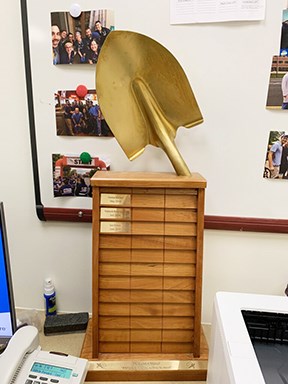“Your aorta might rupture.”
These aren’t words you ever expect to hear, and surely not at the age of 26. But there it was. I stared at my dilated aorta on the echocardiogram, and it stared back at me — defiantly denying me the luxury of denial.
Symptoms had not brought me here. What was supposed to be a routine test had now become a life-altering diagnosis. And when the whistle of the train that had just blindsided me dissipated, I could finally hear its name: Loeys-Dietz syndrome, a genetic disorder that can cause aneurysms anywhere in your body. We don't come across that much in the emergency department, but even this emergency medicine resident knows the basic premise of connective tissue disorders, particularly ones that balloon the biggest blood vessel in the body: high risk for sudden death. As these words were repeated from primary care to cardiologist to surgeon, I understood one thing. This had to be repaired. Soon.
Sitting there, staring down the barrel of the unexpected, all the medical knowledge in the world couldn’t resolve the gut-wrenching concerns this news had prompted. Countless hours of training and study proved useless to silence all the questions that persistently echoed in my mind that cannot yet be answered. What will come of this connective tissue disorder? Will there be complications from the surgery? How will this affect me and my wife down the road? My kids? My career?
Facing the unexpected is not new to me. It’s the very nature of emergency medicine. Every day, each emergency medicine resident walks into the department knowing that they will assess, stabilize, and treat whatever comes through those double doors, but we have no idea what to expect. We are the frontline that sees both the mundane and the atypical, the worried-well and the sick and dying, often with the same chief complaint headlined on their chart. And yet that uncertainty doesn't faze us. On the contrary, for me and probably others, it’s exactly that idea of "anything and everything" that drove us into this specialty. So how then, with this uncertainty, can we be so comfortable with the unplanned when the stakes are so high?
At the end of the day, it's all about who you have in the trenches beside you.
At our program, we have something called a "Golden Shovel Award." To paraphrase a former chief of mine, it's an award for a resident who has demonstrated the mindset of, "when you're deep in the mud and drowning, I’ll bring the shovel." It's this mentality that enables us to function when faced with the overwhelming and the unknown. Some may say it's our proclivity for adrenaline or the culmination of our medical training that keeps us grounded when we face the unexpected. But those things only take you so far. Even the most experienced and hardened provider would flounder in a busy ED alone. To be able to function efficiently and competently with whatever comes through the door, you need the support of your colleagues.
I saw this in action recently as we drilled for a mass casualty incident. We practiced what it would be like if a tragedy resulted in countless patients flooding your doorstep from the back of pickup trucks, police cars, and frantic ambulances. In a situation like this, any one provider would be utterly debilitated. Answering medic calls, coordinating resources, triaging and treating patients—it’s an impossible thing to ask someone to do alone. But, as a team, everyone plays a vital role. And the task, although daunting, becomes a bit more bearable.
We as residents face the daunting every day. We work long hours, holidays, and weekends. We deal with difficult patients, outcomes, and social circumstances. We see, smell, and hear things daily that would make the layperson squirm. And yet we are asked to do these time and time again, and the task can be seemingly insurmountable. We cannot do it alone. We must recognize those around us who need us to grab a shovel and help them through the muck that comprises our daily grind. And one day they will return the favor when you need the extra shovel.
Recently, an unforeseen diagnosis has encompassed me, and several questions remain unanswered. I don’t know how this disease will progress over my lifetime. I don’t know if there will be issues with the repair. I don’t know if I will pass this burden to my children or how this will impact my career.
But I count myself fortunate because I realize that I am not alone. Much like the job I love, I do face certain uncertainty, but I have a team beside me ready to share the burden. A selfless wife, loving family, gracious colleagues and faculty leaders. And although I often feel that I'm neck deep and drowning, not knowing what the future may hold, I look beside me and take heart.
They've all brought their shovels.



